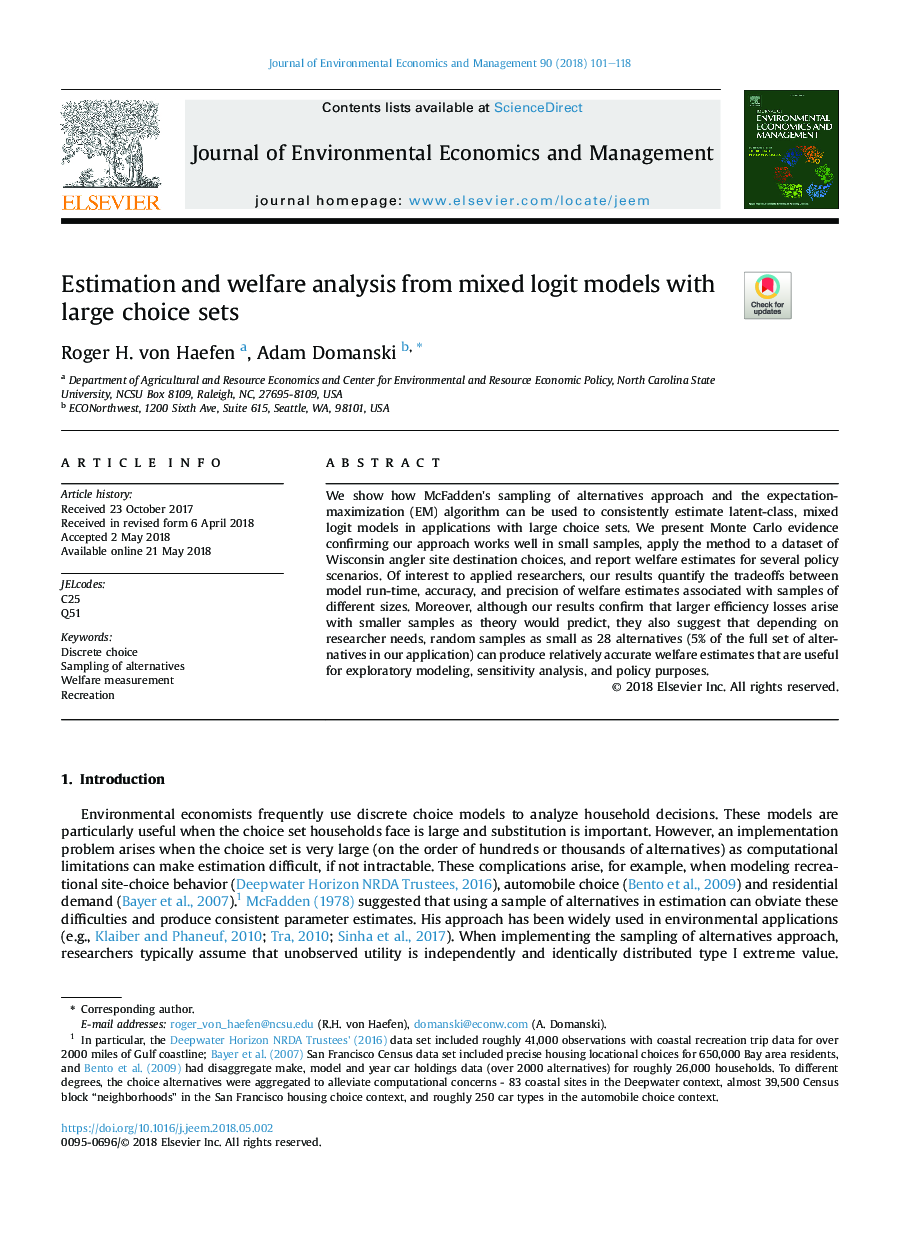| Article ID | Journal | Published Year | Pages | File Type |
|---|---|---|---|---|
| 7361225 | Journal of Environmental Economics and Management | 2018 | 18 Pages |
Abstract
We show how McFadden's sampling of alternatives approach and the expectation-maximization (EM) algorithm can be used to consistently estimate latent-class, mixed logit models in applications with large choice sets. We present Monte Carlo evidence confirming our approach works well in small samples, apply the method to a dataset of Wisconsin angler site destination choices, and report welfare estimates for several policy scenarios. Of interest to applied researchers, our results quantify the tradeoffs between model run-time, accuracy, and precision of welfare estimates associated with samples of different sizes. Moreover, although our results confirm that larger efficiency losses arise with smaller samples as theory would predict, they also suggest that depending on researcher needs, random samples as small as 28 alternatives (5% of the full set of alternatives in our application) can produce relatively accurate welfare estimates that are useful for exploratory modeling, sensitivity analysis, and policy purposes.
Related Topics
Social Sciences and Humanities
Economics, Econometrics and Finance
Economics and Econometrics
Authors
Roger H. von Haefen, Adam Domanski,
